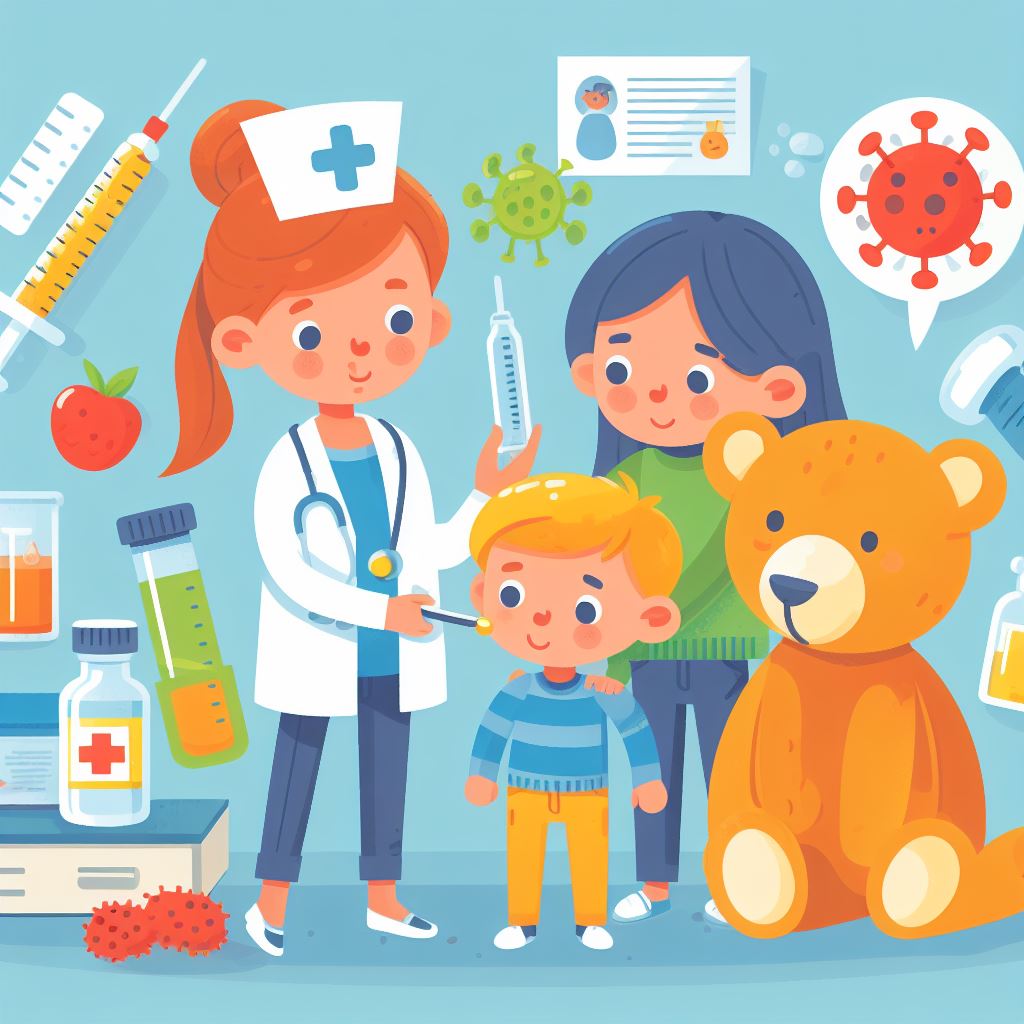Parents play an essential role in the protection and well-being of their children. One of the biggest responsibilities is to fight common illnesses that affect most children. From fevers to respiratory infections to rashes, this detailed article will guide you through the most common childhood illnesses and provide valuable tips on how to respond effectively.
1. Fever:
Fever is one of the most common symptoms in children. This can be caused by various infections or diseases. When your child has a fever, it is essential to:
– Measure body temperature with an accurate thermometer.
– Administer an appropriate antipyretic as directed by the physician.
– Ensure adequate hydration by encouraging drinking water consumption and rest.
2. Respiratory Infections:
Respiratory infections, such as colds and flu, are common among children. To manage them:
– Encourage frequent hand washing to avoid the spread of germs.
– Make sure your child gets enough rest.
– Consult a doctor if symptoms persist or worsen.
3. Ear infections:
Ear infections are common in young children. You should:
– Watch for signs such as ear pain, fever, and irritability.
– Consult a doctor who can prescribe antibiotics if necessary.
4. Rashes:
Rashes can be caused by a variety of conditions, including allergies. To resolve this issue:
– Identify potential triggers, such as foods or skincare products.
– See a dermatologist if the rash persists or worsens.
5. Gastroenteritis:
Gastroenteritis is often caused by viral infections and causes diarrhea and vomiting. Parents must:
– Ensure adequate hydration to avoid dehydration.
– Avoid solid foods for a while.
– Consult a doctor if gastroenteritis persists.
6. Allergic reactions:
Allergic reactions can range from mild to severe. To manage allergies in your child:
– Identify potential triggers and avoid them. – Consult an allergist for allergy tests.
– Always have a plan of action in case of a serious reaction, including the use of epinephrine.
7. Vaccinations:
Vaccinations are essential to prevent many childhood diseases. Follow the vaccination schedule recommended by your pediatrician to ensure your child is protected.
8. Diarrhea:
Diarrhea in children can be caused by viral or bacterial infections. To manage it:
– Make sure your child drinks plenty of fluids to avoid dehydration.
– Avoid fatty and difficult-to-digest foods.
– Consult a doctor if diarrhea persists for more than a few days.
9. Injuries and Falls:
Children are often active and can be injured while playing. To solve this problem:
– Protect your home by eliminating dangerous or sharp objects.
– Learn basic first aid for minor injuries.
– Seek medical attention if you are seriously injured or have any concerns.
10. Disease Prevention:
Prevention is essential. Make sure your child:
– Eats a balanced diet and practices good personal hygiene. – Wash your hands regularly to prevent the spread of germs.
– Be up to date with your vaccinations according to the recommended vaccination schedule.
11. Listen to your child’s cues:
Learn to recognize your child’s cues. If you complain of pain, discomfort, or unusual symptoms, listen carefully and take appropriate action. Don’t underestimate your child’s concerns.
12. The importance of communication:
Communication with your pediatrician is essential. If you have any concerns about your child’s health, do not hesitate to ask questions and seek advice. Regular follow-up with your child’s doctor can help detect and prevent health problems.
13. Stress management:
A child’s illness can be stressful for parents. Make sure you look after your well-being and ask for help when needed. Managing stress is key to staying strong and helping your child get through tough times.
14. Educate your child:
In addition to taking care of your child’s health, teach him good habits so that he becomes independent. Teach them the importance of hand washing, healthy eating, and personal hygiene.
15. The Role of Parents:
As a parent, your role is to monitor your child’s health, provide emotional support, seek medical attention if necessary, and maintain strict hygiene practices to prevent diseases. Stay in touch with your child’s doctor, follow vaccination recommendations, and listen to your child’s needs.
16. Resources at your disposal:
Remember that you have access to numerous resources for help and information. Parent support groups, books, medical websites, and your child’s pediatrician are excellent sources of information and advice.
Conclusion:
By effectively managing common childhood illnesses, parents contribute to the health and well-being of their children, helping them grow up happy and healthy. Remember that every child is unique, so if you have any concerns about your child’s health, do not hesitate to consult a healthcare professional for personalized advice.

